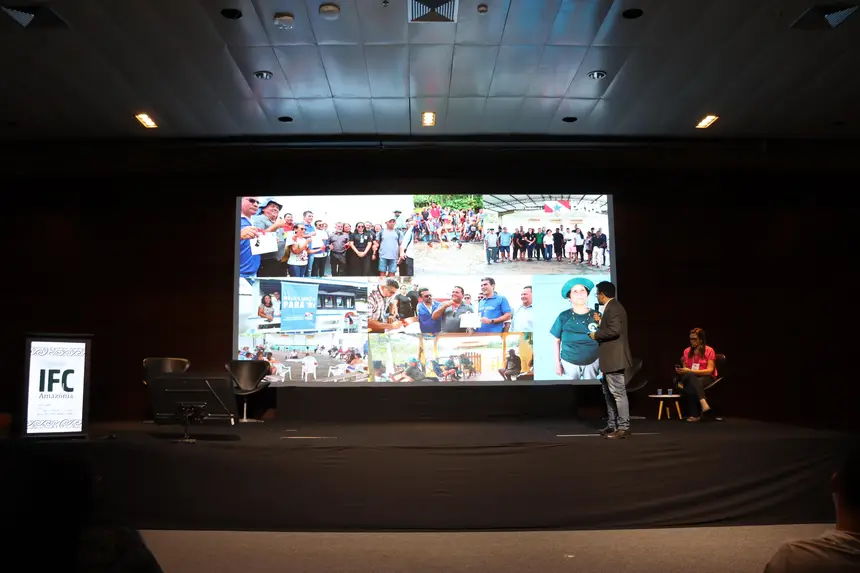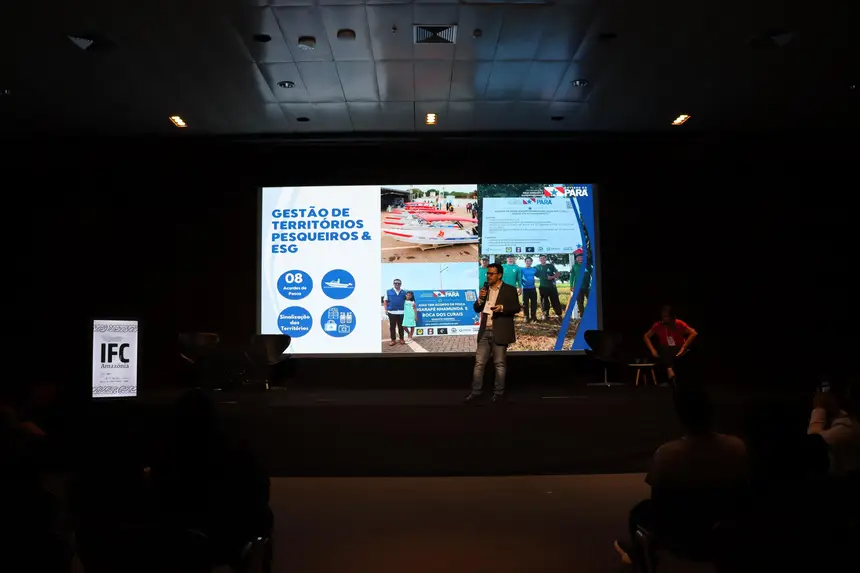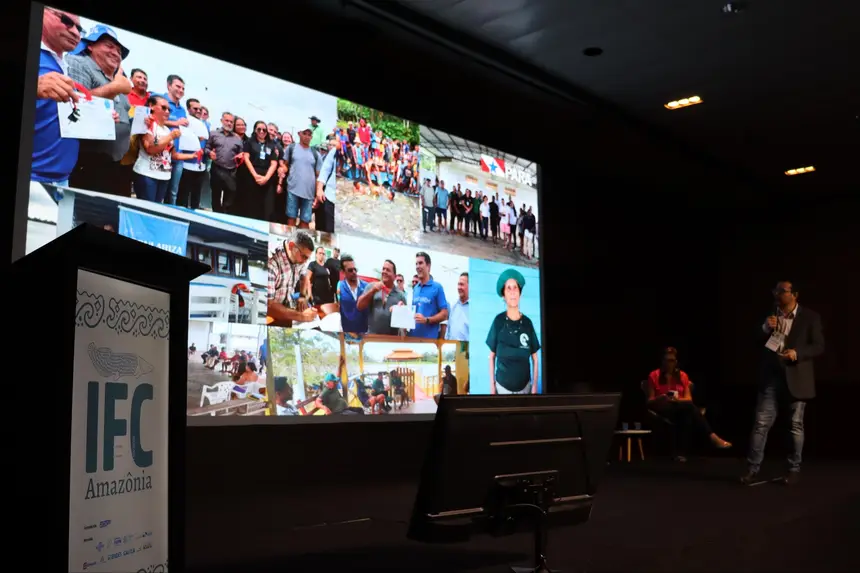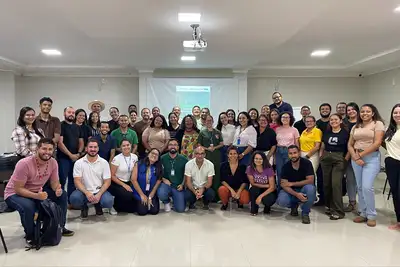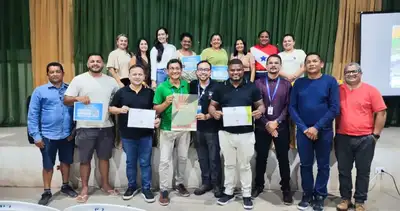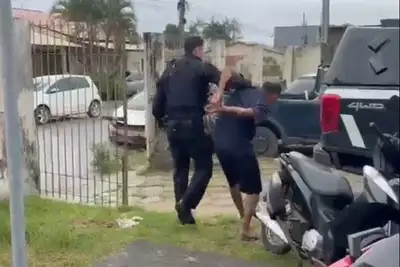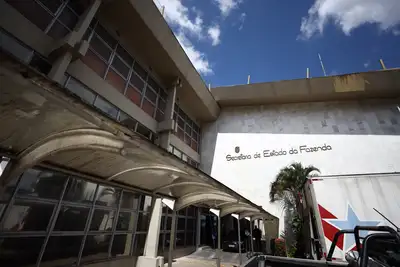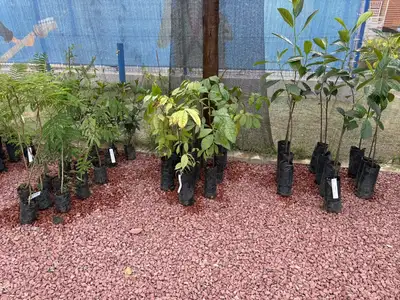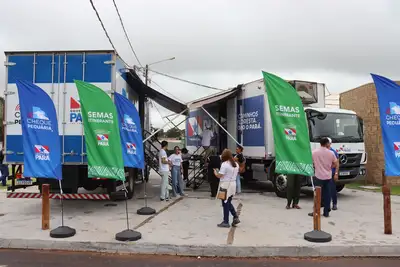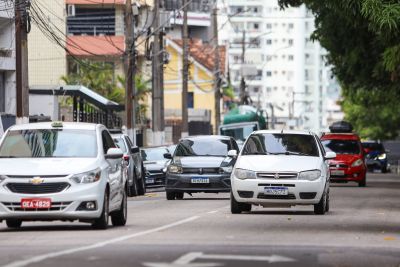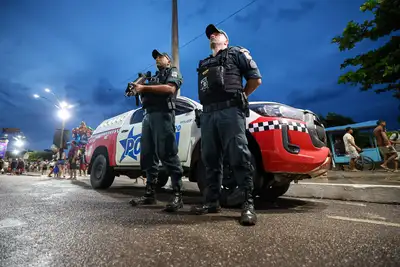Semas highlights community management of fishery resources at international seminar
Representatives from the Secretariat emphasized the reuse of fishing materials, fish, community tourism, and training of communities to transform waste into value-added products
The State Secretariat for the Environment and Sustainability (Semas) participated in the 2nd edition of the International Fishing Congress and Fish Expô Brazil (IFC Amazônia), at Hangar - Amazon Convention and Exhibition Center, in Belém. The event, held on Friday (25), aims to expand fish production sustainably and support the development of fishing and aquaculture in the Amazon.
In addition to winning an award in the Public Policies category of the IFC Amazônia 2025 Award, Semas, represented by the Deputy Secretary of Environmental Management and Regularity, Rodolpho Zahluth Bastos, opened the panel on the last day of the event with the theme "Community management of fishery resources - Policies and results of fishing agreements."
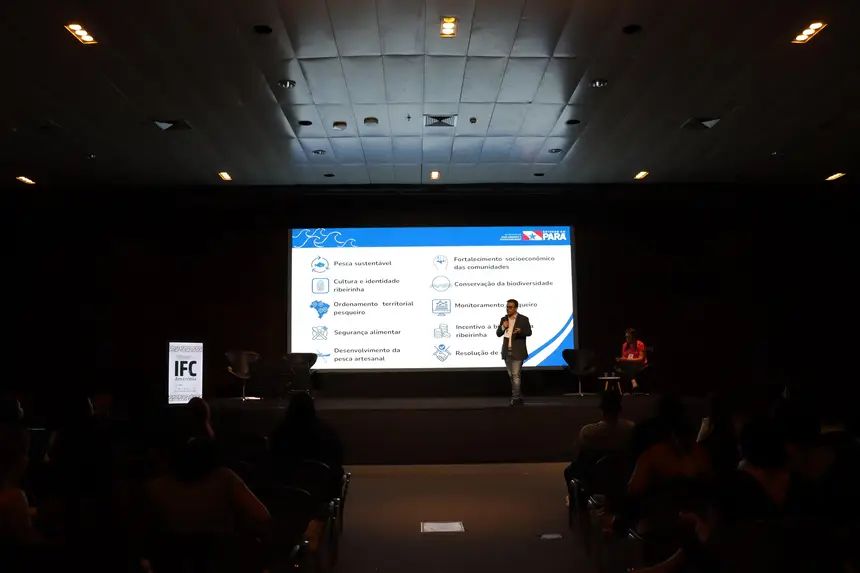
Local reality - Semas pointed out strategies to strengthen biodiversity conservation and implement public policies aimed at fishing and the local economy, prioritizing the development of artisanal fishing. During the first panel, the Deputy Secretary of Semas emphasized the need for a long-term perspective, highlighting the importance of considering local realities, such as the role of fishing in the states of Pará and Amazonas, and involving communities and municipalities in the co-management of community fishing territories.
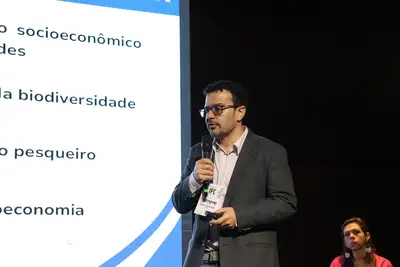
Also addressed were the advancements of support instruments, such as the signaling of fishing territories, aimed at mitigating conflicts and ensuring compliance with fishing rules. The integration of environmental governance practices (ESG) was also highlighted, suggesting collaboration between the private and public sectors to generate a positive social impact and support initiatives aimed at the development of riverine bioeconomy.
"The debate on sustainable management of fishery resources cannot be treated superficially or with a short-term vision. We need to look to the future and implement public policies that involve local communities, municipal managers, and the private sector. The signaling of fishing territories, community training, and the integration of circular economy practices are essential to create new economically sustainable opportunities for community fishing territories. We are working so that, through concrete projects, we can strengthen the local economy, improve people's quality of life, and ensure that future generations can continue to enjoy a healthy and balanced environment,” emphasized Rodolpho Zahluth Bastos.
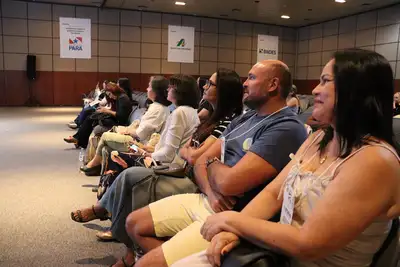
Stock increase - Maria Cristina Andrade is part of the Igarapé Nhamundá Institute, located in Oriximiná, a municipality in the Lower Amazon Integration Region, western Pará, one of the regions benefited by the Fishing Agreement since 2023.
“We are in the area of the Igarapé Nhamundá Fishing Agreement, and since the implementation of the Agreement, we have noticed a significant improvement in fish stocks and aquatic fauna, including the manatee. The community has become aware of the importance of this area regulated by the state government. This Agreement had been stalled for years, but it was only from 2021, with the new government, that it was finally implemented, bringing essential benefits for stock renewal and ensuring the sustainability of the local population's way of life,” said the resident.
Still regarding the promotion of circular economy practices, Rodolpho Zahluth Bastos addressed the reuse of fishing materials, the fish itself, community tourism, and training of communities to transform fishing waste into value-added products as solutions to generate socioeconomic opportunities.
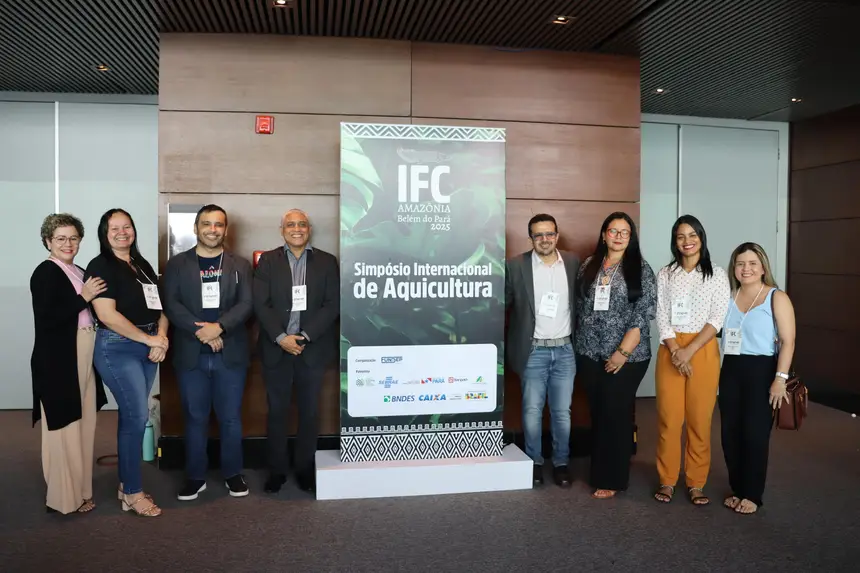
Semas concluded its participation with technician Kleber de Sá, a panelist at the International Aquaculture Symposium, who spoke about "Environmental licensing with the new sustainable development policy for aquaculture in Pará," alongside Alan Pragana, coordinator of Aquaculture at the State Secretariat for Agricultural Development and Fisheries (Sedap).



